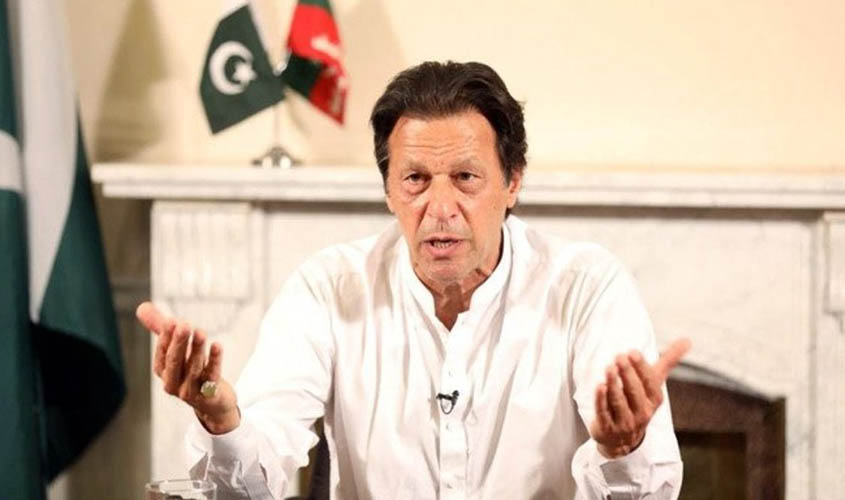For the first time in Pakistan’s chequered history, all its three key elements—the army, the radical Islamists and the ruling political party—are on the same anti-India axis. This deadly combination is ominous for India. While hoping for the best, India should prepare for the worst, not just in Kashmir but elsewhere as well, both within and outside the country.
It is of no consequence that Hafiz Saeed’s party could not win a single seat in the just concluded Pakistan election. He was not allowed to win as a matter of strategy, as his success would have flared up anti-Pakistan reactions all over the democratic world. But the very fact that a declared terrorist was allowed to participate in the electoral process speaks volumes of the Pakistani mindset. Vote or no vote, the fact that during the campaign he was permitted to spit venom against India, the largest democracy in the world, shows how the anti-India Pakistani mind works. The Pakistani mindset is against India and people like Hafiz Saeed serve the purpose of stoking the fire of anti-India sentiments, which he and his ilk did successfully. This is what the military wants—to keep the Pakistanis high on anti-India jingoism. With jihad as a declared state policy of the Islamic Republic of Pakistan against infidel India, terrorists like Hafiz Saeed fit very well in this plan.
Imran Khan’s ascension to power through an election rigged by the military is nothing but the murder of democracy under the guise of a popular mandate to carry on with the army’s jihadi terrorist agenda. Imran is a supporter of radical Islamists, is a puppet of the military, a stooge of China, a supporter and self-appointed spokesman of the Kashmiri separatists and is cruel and insensitive towards the plight of the Baloch, the Sindhis and the people in Pakistan Occupied Kashmir.
His victory speech referring to human rights violations in Kashmir makes it amply clear that he is going to follow the Pakistan military’s agenda on Kashmir and would do anything to make this Indian territory Pakistan’s. This means that terrorism is bound to increase in Jammu and Kashmir as is already happening. At the same time, his insistence on a dialogue on Kashmir and trade is aimed at securing recognition for his tainted government. But more than that, it may be, as usual, a trap for India to enter into a dialogue with Pakistan, but then all such dialogues have always proved to be meaningless. They have never brought peace, instead always more trouble in Kashmir. The Kashmir problem, according to Prof Balraj Madhok, is an off-shoot of the problem of Pakistan, which is a by-product of the Muslim problem, to solve which united India was partitioned in 1947. Pakistan’s confrontationist policy towards India is inherent in its genesis and the ideology of Islamism that has been sustaining it.
Besides Kashmir, the growing ISI influence has an effect on the Khalistan movement as well. The attempted revival of the movement through “Referendum 2020”, supported and promoted by the overseas Sikhs For Justice (SFJ) group and funded by the ISI, is yet another example of Pakistan’s nefarious designs against India. Historically, the genesis of Sikh separatism can be traced back to the divide and rule policy of the British, but in the post-Independence period, the trigger was provided by the Anandpur Sahib Resolution, following which demand grew for a separate Sikh state. An out of context reference to the words of the sixth Guru, Har Govind on “Meeri” and “Peeri”—the temporal and spiritual power”—and ignoring the words of the tenth Guru, Gobind Singh, who said that the “Khalsa Panth” was founded to protect “Hindu Dharma”, apart from forgetting the sacrifices of Guru Tegh Bahadur and the sons of Guru Gobind Singh are the direct results of brainwashing under the jihadi influence of ISI and Pakistan army to avenge the defeat of 1971.
Therefore, India needs to be wary of Pakistan whose democratic pretensions may spell additional trouble for India, be it in the NRC issue in Assam or unrest in the Kashmir valley over Article 35A. India’s Pakistan policy should be firm and reciprocal, which implies, talk and terror never go together. Although successive Indian governments have been saying this, but they succumb to pressure on talks and break India’s spirit of stiff resistance towards Pakistan. This must be avoided.

